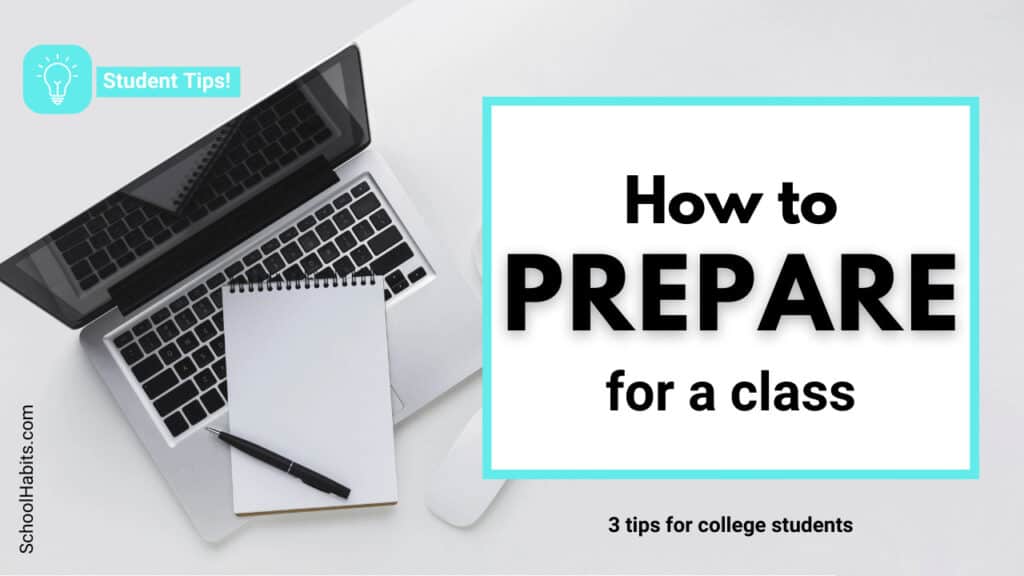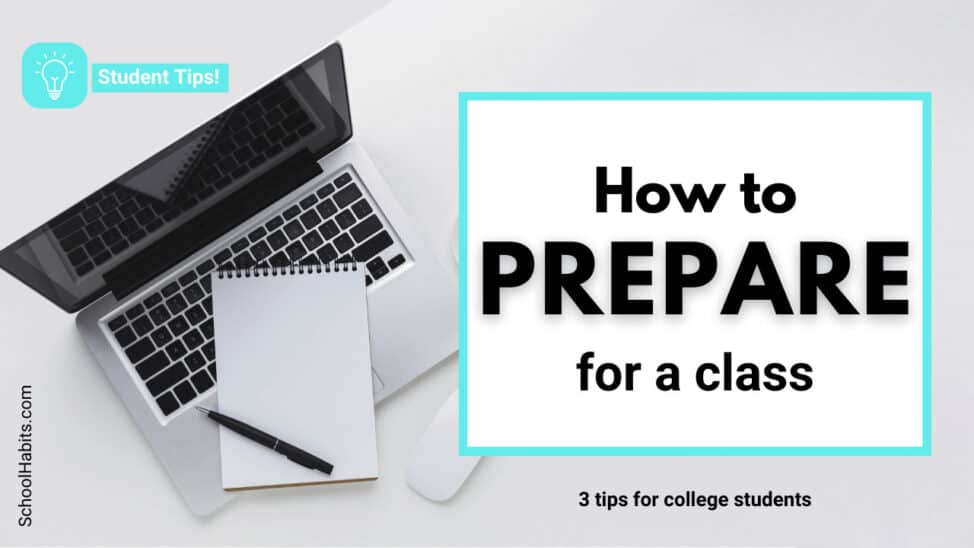By Katie Azevedo, M.Ed.

The following tips are primarily for college students, although high school students may also find them helpful.
If you’re in college, you already know that homework consumes much of your day. But one of the secrets of A-level students is that they also spend a portion of their time preparing for classes. This tutorial will teach you how to prepare for a class and offers simple tips to make your preparation efforts practical and effective.
Why bother preparing for a class?
Preparing for a class is technically priming. Priming is a legitimate learning and teaching strategy that involves activating the same cognitive schemas (brain networks) required to process the information you’re about to learn. Priming essentially prepares your brain to acquire new information by activating prior knowledge or laying the groundwork with basic knowledge so that the new information has a “place to go.”
When you know how to prepare for a class using the strategies below, you increase the chances of understanding and properly storing the information you’re trying to learn.
How to prepare for a class
You have no time. I get it. The idea of adding tasks to your plate, on top of your current homework load, must sound insane. But hear me out: the more you prepare for a class, the more you’ll understand what you’re learning, and ultimately the less you will have to study. So while you may have to front-end some work, you’ll save yourself a boatload of time and effort in the end.
Here are some practical ways to prepare for a class:
1. Skim upcoming chapters ahead of time.
Using your syllabus as a guide, take 10-20 minutes before a class to skim through the required reading that will be assigned after that class.
For example, if you know that today’s class is going to be about the effects of World War II on Poland’s economy, you could prepare for class by skimming the chapters related to that topic. Notice I’m suggesting to skim the chapters, not read them thoroughly. Chances are high that your homework following the class will be to read something thoroughly, but skimming the chapter’s headings, subheadings, vocabulary and review questions before the class is sufficient for the purpose of priming, and will increase the amount of lecture information you retain.
2. Review your notes from the class before.
To prepare for a class, review the last notes you took. (Here’s how to take notes during a lecture class, and how to take notes from a text.) Reading through your notes is level one and has basic benefits, but if you want to prepare like a pro, here are some tips for how you should really review your notes:
- Read over your notes slowly and out loud (engage auditory processing).
- After a few lines or so, try to summarize what you just read without looking at your notes.
- Rewrite your notes, consolidating and revising information as you do so.
3. Research topics before class.
Again, using your syllabus as a guide, see what topic you’ll be covering in your upcoming class. Do some basic Google-level research to learn a little background information (watch a video, find infographics on Google Images, etc.) so that you’ll better understand the new information coming at you.
More tips about how to prepare for a class:
- Preparing for a class should take somewhere around 30 minutes at most.
- You don’t need to prepare for all your classes all the time.
- Start by preparing for classes that you know will be introducing new information or classes that are challenging.
- Schedule this time into your agenda, just as you would schedule time for homework.
If you’re in college, I highly suggest you learn how to properly shut down after each semester. There are 10 simple steps that I give you right here that will help you wrap up your current semester and get ready for the next one.

